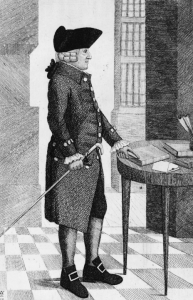
By Molly Worthen
Contributing Opinion Writer
KATE Havard is taking a break from American conservatism. “I’m not sure what’s happening with my party right now,” she said from Jerusalem, where she is studying Hebrew. “I need a timeout.” When she returns to her job in Washington at the Foundation for the Defense of Democracies, she’ll seek refuge among a small group of young conservatives who believe that studying the history of ideas helps them keep Donald J. Trump in perspective.
Ms. Havard, 26, said that before she left for Israel, “we’d get together once a week to have a political philosophy study group,” to discuss ancient authors like Xenophon instead of bashing Obamacare. Studying the deep roots of “conservative principles” helps allay the fear “that just because there’s a politician ascendant who totally disregards these things, that means the end of the conservative movement,” she told me. “You have to be hopeful.”
A small but growing number of young conservatives see themselves not only as engaged citizens, but as guardians of an ancient intellectual tradition. The members of Ms. Havard’s group were alumni of a seven-week crash course in political theory offered by the Hertog Foundation, the family foundation of the Wall Street financier Roger Hertog. Attendees discuss authors like Aristotle, James Madison and Leo Strauss and hear lectures by scholars and policy experts. “Our curriculum represents what we think ought to be a high-level introduction to politics, one you rarely find in any political science department,” Peter Berkowitz, the program’s dean, told me.
The Hertog course is one of more than a dozen similar seminars sponsored by conservative and libertarian organizations around the country. Some last for months, others just a few days. Some recruit older participants, but most target college students and 20-somethings.
The syllabuses and faculty range from say, the secular Jewish milieu of Hertog to the libertarian Cato Institute to the Christian traditionalism of the John Jay Institute. But all these programs seek to correct the defects they see in mainstream higher education by stressing principles over pluralism, immersing students in the wisdom of old books and encouraging them to apply that wisdom to contemporary politics.
Liberals have their own activist workshops and reading groups, but these rarely instruct students in an intellectual tradition, a centuries-long canon of political philosophy. Why have philosophical summer schools become a vibrant subculture on the right, but only a feeble presence on the left? The disparity underscores a divide between conservatives and liberals over the best way to teach young people — and, among liberals, a certain squeamishness about the history of ideas.
Image credit: Universal History Archive/Getty
